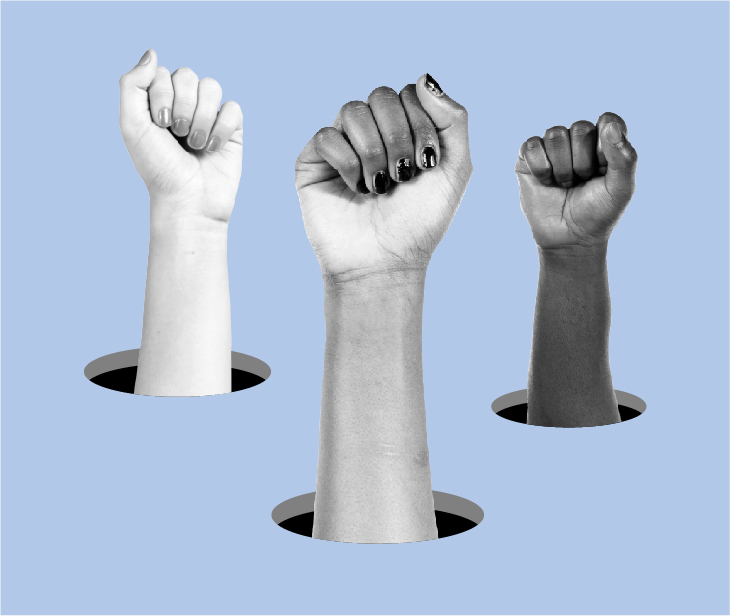On April 14th, 2021 WILPF Germany hosted an online event with the title “What’s going on in Myanmar? Feminist Perspectives and International Responsibility“.
written by Sofie Bliemel
The goal of the webinar was to raise awareness about the situation in Myanmar, where the military recently staged a coup and is increasingly using violence against protesting civilians.
What’s happening in Myanmar?
During the coup on February 1st, the Burmese military detained democratic leaders, among them de facto president Aung San Suu Kyi, whose party, the National League of Democracy (NLD) had won 83 percent of the vote in last year’s election. Myanmar looks back on almost 50 years of military rule between 1962 and 2011 and has seen repeated mass protests that were violently beaten down by security forces throughout its history. Now, the people are rising again. Spearheaded by the Civil Disobedience Movement (CDM) tens of thousands have taken to the streets all over Myanmar. In response, the Military has killed more than 700 peaceful protesters, among them at least 43 children[1]. Thousands have been detained. Groups warn that Myanmar is at the brink of state failure and are calling for international action[2].

Nandar is one of the most vocal feminist voices in Myanmar, founder of the Purple Feminists group and podcast-host. She fiercely criticizes the Burmese military as misogynistic and patriarchal. To her, the coup is devastating for the work of feminist advocates in Myanmar, “like the progress we made collectively, evaporated overnight”. She subsequently felt like it was “pointless and meaningless to do anything about gender inequality” and instead joined the protests.
In her criticism Nandar never misses one point: the gender dimension of the political situation and the role of women in the movement. With women being at the forefront of the protests, “we have been able to break the traditional image of Myanmar women as being submissive – women are leaders and women can be political”. She thinks that this part of the “progress that the feminist movement in Myanmar has made over the past few years” and will inspire younger generations. While the movement is shaping the image of women in Myanmar, this progress is now under threat. Nandar explains that Myanmar is a deeply patriarchal society, where the man is seen as the head of the household. Transferring this to the national level, where Aung San Suu Kyi is commonly called the mother of the nation, the military sees itself as the father of the nation and therefore thinks that “they must be the leader of the nation as well”.


The dire situation in Myanmar was also highlighted by Mirja Brand, who has been working with an NGO in Myanmar with the German World Peace Service for the past year and has been active in the region for years. Living in an ethnic region of Myanmar, people around her were subject to high levels of insecurity, as “some of my local contacts were changing the place they slept every night because of police and military raids”, she said. The political situation also makes work for NGOs extremely challenging, with many organizations shutting down their offices for safety reasons and because “people were experiencing high levels of stress and trauma and were not able to do regular office work”. Exacerbated by the pandemic, regular internet shutdowns are an additional challenge.
What can the international community do?
Formed shortly after the coup, the Global Movement for Myanmar Democracy (GM4MD) is a youth-led grassroots organization supporting Myanmar’s fight for a federal democracy. Stefanie Clamor, who is the German Representative for GM4MD explained that “our mission is to leverage social media and mass organizations to raise awareness among the diaspora but also the broader international community”. The group achieves this through advocacy, global campaigns and health and wellness initiatives. For Germany and the EU specifically, they pushed for the now issued targeted sanctions against the military-owned conglomerates MEC and MEHL and continue to do so for MOGE. They call for international recognition of the newly formed National Unity Government (NUG) and for expelling the military attaché from Germany. GM4MD also supports referring the case of Myanmar to the International Criminal Court (ICC).
Addressing international support more generally, the panelists agreed, that international humanitarian aid is urgently needed. Mirja emphasized the importance for international organizations to “reassess their programs, listen to the need of local communities and work with existing local structures rather than completely stop their funding”. Not least, the panelists also stressed the importance of individual support. Nandar urgently called on participants to show solidarity with the people in Myanmar by taking part in the movement. People should inform themselves, listen and speak about the situation in Myanmar as well as contribute funds, resources and knowledge however they possibly can. “Please do not take this as ‘not my problem’” she said, “please take it as our problem, because we are sharing this world”.
Petitions, Campaigns and Fundraisers to support Myanmar
Petition to Urge International Denial of Myanmar Ambassador Termination and Provide Protection Visas: https://tinyurl.com/visaglobalpetition
Petition to Expell the Military Attaché from Germany: https://www.change.org/p/bundesau%C3%9Fenminister-heiko-maas-reaktion-auf-milit%C3%25A%5b…%5d_petition&utm_medium=copylink&utm_campaign=share_petition&utm
Medical Advocacy Campaign: https://www.gm4md.org/campaigns/medical-advocacy
Fundraisers: https://www.gm4md.org/fundraisers
[1] ASSISTANCE ASSOCIATION FOR POLITICAL PRISONERS (BURMA). https://aappb.org. Last accessed April 21, 2021.
[2] International Crisis Group. Myanmar on the Brink of State Failure. April 9, 2021. https://www.crisisgroup.org/asia/south-east-asia/myanmar/myanmar-brink-state-failure

